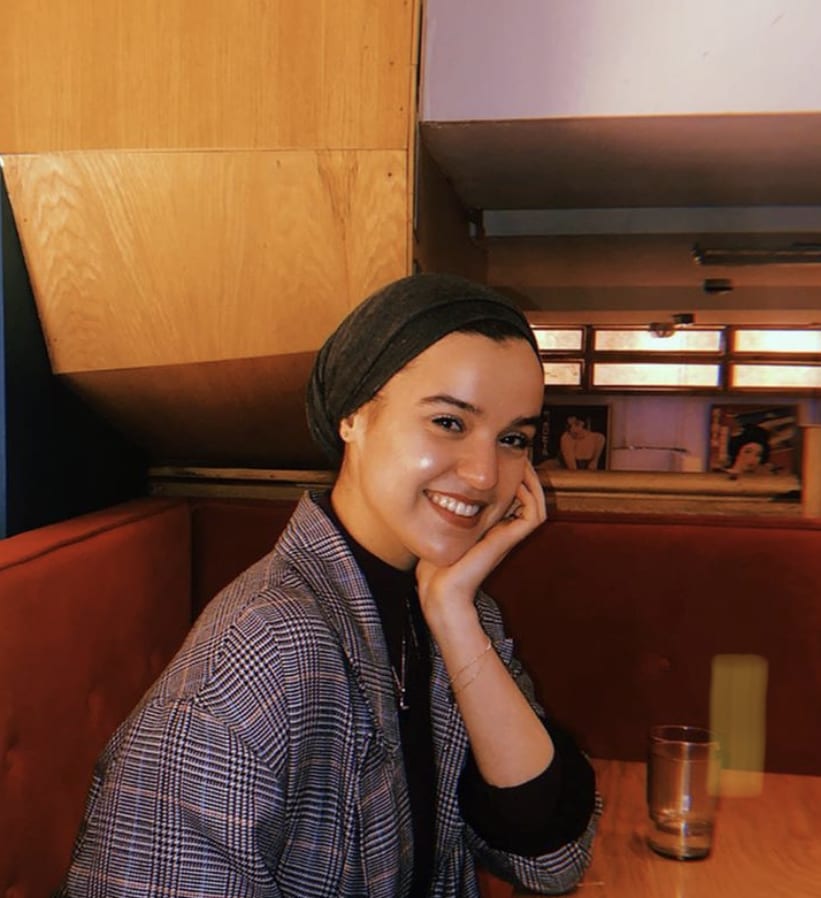When we think of Yemen, war and famine often come to mind straight away. The UN has declared that Yemen is suffering the world’s worst humanitarian crisis and that the lives of millions are at risk if the situation on the ground does not change. But a group of Yemeni creators want the world to see what the country has to offer by highlighting what ‘Yemen used to be’.

Illustration courtesy of Yemen used to be
Founded by Ahmed AlHagri, who was later joined by Waleed AlWard, in 2019, the project is “an art initiative that aims to alter stereotypes held about Yemen” and a platform which “directs its efforts in an artistic approach to change the negative image of Yemen in the eyes of those near and far”.
The following year, ‘Yemen used to be‘ launched its first art exhibition in the Yemeni capital Sanaa. Both Ahmed and Waleed ”decided to put together an event to get creatives to share their work.” Artists, singers and changemakers came together hoping to bring a “positive perspective” to the narrative on Yemen.
![In 2019 ‘Yemen used to be’ held its first event in the Yemeni capital Sanaa [Yemen used to be]](https://i0.wp.com/www.middleeastmonitor.com/wp-content/uploads/2021/03/Sanaa-IMG-2-min-scaled.jpg?resize=920%2C614&ssl=1)
In 2019 ‘Yemen used to be’ held its first event in the Yemeni capital Sanaa [Yemen used to be]
“The Ramadan project was one of my favourites,” Waleed says, as it was an opportunity to “share stories about the wonders of Yemen and the celebrations that we have which bring people together” and shed light on the important “traditions” Yemen carries during the fasting month.
Sixteen people now make up the team at ‘Yemen used to be’, all are volunteers who are passionate about bringing these stories to life with the aim of “educating people” around the world. “We don’t do this for the money, we are a group of volunteers that come and go, we do our best to just create what we really love,” says Waleed. “We want to tell these stories because there is a meaning far and wide, Yemen is so broad and so different in many ways and we want people to learn about it.”
“Most of our audience are from the Yemeni diaspora. People that were born and live outside Yemen that crave a sense of understanding and finding of one’s identity,” Waleed explains. “We seek a connection through understanding stories of our homeland and it’s quite sad that many don’t know about their culture.” This, he continues, is the project’s “duty, to grant people outside of Yemen the knowledge that is needed”.
The project has not only taken the Yemeni diaspora by storm, but has now reached an audience beyond. Their efforts shed light on stories of writers such as Amal Balajun, who was a renowned journalist, to musicians like Ahmed Fathi, who was known to portray “the roles of oud in Yemeni songs” – all of whom created historic movements in Yemen.
“We stay away from politics,” says Waleed, “it’s these unique stories and ambitious people we want to focus on.”
Growing up, we were raised to see things in a certain way. As if there was a political agenda. We didn’t learn much about the deeper history and real culture that lives within Yemen, from the people to the food and celebrations. That’s why now we want to change the narrative.
‘Yemen used to be’ now hopes to focus on making its resources more comprehensive for those that want to dive deeper into Yemen’s history, using a “public library” where information is more accessible, Waleed explains. This will bring more “interactive stories” which will bring Yemen’s history to life.

In frame: ‘Yemen used to be’ team members

![Sketch work and behind the scenes with Yemen used to be [Yemen used to be]](https://i0.wp.com/www.middleeastmonitor.com/wp-content/uploads/2021/03/Sketch-work-and-behind-the-scenes-with-Yemen-used-to-be.jpg?fit=920%2C613&ssl=1)


![Ramadan IMG 3 _ 1 OUT OF 2 Ramadan project [Yemen used to be]](https://i0.wp.com/www.middleeastmonitor.com/wp-content/uploads/2021/03/Ramadan-IMG-3-_-1-OUT-OF-2.png?w=456&h=510&ssl=1)






